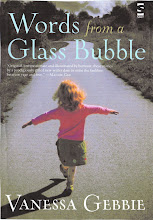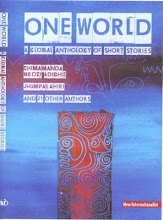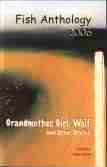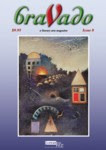Here is my contribution, with apologies for lateness. I am technologically challenged. Put it down to the fact that I was In Wales. of which more later in the week.
INSPIRATION VERSUS PLAGIARISM
or How to avoid crossing the line.
Or even better, The “Creativi-tree” and suchlike inventions.

Many writers work in face- to- face groupings or online writing communities, and gain great benefit from so doing. Positive benefits include (if I need to say it -) the giving and receiving of feedback, the sharing of information regarding markets for one’s work, the support of one’s peers when it comes to rejections and other knock-backs and of course, the joy of celebrating successes together, in addition to that unquantifiable thing, an antidote to the loneliness of the long distance writer. There can be a synergy that becomes the old cliché of the whole being greater than the sum of the parts.
So we are constantly reading each other’s work, analysing it, offering criticism. And, just as writers find inspiration in everything – especially reading- we may also find inspiration in the work of our colleagues. But groupings like this thrive on integrity and trust. And we must be aware of the difference between inspiration and something else…
Let’s look at what inspiration is/does. We see an image. Hear a voice. A musical phrase. We may read a line of prose, or poetry. Smell something that reminds us of….(think Proust). Suddenly, the floodgates open in our own creative spaces, pushed open by our reaction to the original stimulus. I am sure there are many intelligent academic papers dedicated to an anlysis of how stimuli work on the brain – this is just a lay interpretation. But I know from personal experience that the words of some writers work wonders on me more than others. Some writers just open me up, start the flow, inspire me to create.
An honest awareness of our own creative processes is important. It is good to know how we work best, and from where we often find our inspiration. And it is good to celebrate the differences in the approaches of our colleagues. To be aware of other ways in which to work can only be good. Trying different things out, stretching ourselves, is like going to the gym. (Don’t ask…).
But it is also important to respect the personal space of others. And I have learned the hard way that it is vital to listen to those little warning voices that tell us when something is not quite right with our working relationships.
What do I mean? Well, it is easy to draw a comparison with meeting someone face to face. We all have a personal space boundary, if you like, which, if breached, feels quite uncomfortable. Think of the over-friendly man/woman you met once at a party who stood just that little bit too close – invading your space so you felt you wanted to take a step back.
You can invade the space of a fellow writer in exactly the same way. Whereas the physical manifestation of this boundary-crossing is a sense that you want to move backwards, the writing space-invader causes a similar reaction – only maybe it is not always recognised. As I didn’t. I just felt uncomfortable! Silly me.
It is fine, wonderful and terrific and all other positive words, if a piece of writing makes us feel something, and makes us buzz so much that we rush off and spill out something new and fresh. Something that began as a phrase, a word, an image from somewhere/someone else, becomes a seed that grows into a full-grown tree produced by your own creativity. Indeed, Raymond Carver was inpired by phrases from Chekhov among other things, and he kept a list. His widow, Tess Gallagher, shared them with the world by inviting other writers to use the ones he left behind when he died.That’s fine, great! Its lovely to know that Carver worked this way. And lovely too to know that we can all feed each other these seeds.
 But seeds are one thing. Uprooting whole trees from other people’s land and carting them into your own plot is entirely another!!
But seeds are one thing. Uprooting whole trees from other people’s land and carting them into your own plot is entirely another!! 
So here are a few things to avoid when working with other writers. To think hard about. To seek permission before doing. And to not do. And a few to not even think about because for normal people like you and I, they are beyond our experience of what is acceptable behaviour.
1) Things to avoid when working with other writers. Or at the very least, things to seek permission before doing.

• Don’t march in and take over/join in with THEIR writing. It is an invasion. It goes like this…they write a piece, and maybe post it online or bring it along to a meeting for feedback. And with no warning, no permission sought, and no feedback offered, you copy their voice, characters, storyline, setting and produce the sequel to their work. Now, it can be great fun collaborating or playing ping-pong like this with writing. But it should always be done with the agreement of the other person. Don’t assume they will like it if you muscle in. Ask if it is OK, if they want to ‘play’.

• If you do play at creating a ping-pong story like this, be aware that neither of you really ought to submit that piece of work unless it is seriously changed in the editing process. Or unless it is submitted under your joint names. It is not ‘your own work’, either of you.

• If you do obtain permission to work as above, please do not only batten on the work of others. Please remember to let others use YOUR work as a base for collaboration as well. Encourage people to do so. And if no one in your group is interested in working like this, using your work as a starting point for a collaboration, ask yourself why that might be. It might be that they do not need to, that they have plenty of ideas of their own and do not need to use other people’s work to jump-start their imaginations.

• Remember to treat these exercises, if you do them, as exercises, not as a way to increase your individual pool of work. As said above: the results are not yours, they are shared endeavours.

• Never use the work of colleagues in your own work without permission.
• For example: Don’t take a short piece of their work and rewrite it into a longer piece, just because you think you can do that story better. You may well be able to, but that is irrelevant. It is unacceptable to do this to colleagues.
• Use your own ideas. Don’t use your colleagues’ characters, images voices or storylines. It is bad enough for a writer to take not just seeds, but multiple ideas from published work they find elsewhere*… but to take them from the colleagues you are working with in a position of trust, is unacceptable.

• IF you read something of theirs that you love enough to really want to use, ask. Be prepared to accept the answer ‘no’.

• Use your common sense over this one – just because a colleague has written a story set in a space rocket does NOT mean you can’t set your story in a space rocket! But if they have written about a character who turns skybluepink in a space rocket DON’T write about a character yourself who does the same thing, in the same place. That might look like copying.

2) Things I would suggest should never be done by any writer. Working colleagues or not.
• Don’t take anyone’s unwritten ideas for your own. You may well discuss ideas and plans for future projects among yourselves in a writing group. If a colleague shares a plan with you, do not go away and use those as- yet-unwritten ideas yourself.

• If you are given someone’s work as a trusted reader, respect that work. Don’t plunder it for ideas.

• If you find yourself inspired to write a piece, and having done so, realise it bears a remarkable similarity to something you read recently by a colleague, it is not enough to argue that the inspiration came from elsewhere. That’s irrelevant. They got there first.

• Do not use more than one, maybe two salient points from any published work. There are plenty of examples of stories that run along the same plotlines as the classics. With different characters, settings, and so on and so forth. What is not acceptable is to take someone else’s structure, AND character, AND storyline, AND setting, AND other unique selling points- and then pass it off as yours.

Please remember. Very few people would even think of doing any of these things. But they do happen. Be aware of it.
I’ve had so many writers saying “but of COURSE people would never do that! There’s no need to say these things. It’s like reminding a normal person that they must not go and murder someone!”
Yes, my lovely friends and colleagues, I hear you. I do so in case there is a new writer out there who is wondering what the boundaries are. I do so to give a guideline to writers setting up new groupings.
• and finally -Just an observation, really. More about the Creativi-Tree. If we are to create original work, we have to learn to see things for ourselves. Grow our own seeds, into our own trees. We have to learn to find what is original in things that seem ordinary. Copying others stops us doing that. It is not only lazy, it endangers the perpetrator in so many ways. It could be argued that every time you fall back on the ideas that were born in someone else’s head, you blunt your own creativity. Besides which, you lay yourself open to censure. To have the lable ‘plagiarist’ attached to your name is a dreadful thing.
N B Oak Tree image from Stanley Bronstein’s site, HERE
and little burglar-person from HERE




.JPG)























14 comments:
Very wise and very helpful. And, of course, very cute :-)
Thanks Sue!
V, I think this is just about the perfect post. I agreed (was nodding!) with every word.
The whole thing's quite simple really: don't nick stuff (and I'd add: if you do, be very, veRY, vERY VERY ashamed).
We're writers, aren't we, not copiers. We make stuff up. Well, the good ones, the real ones, do. And the real ones probably have consciences too.
Nik
Thanks Nik. These groups can work so well ...
Extremely well said, V, very clearly drawn lines, I do hope that anyone who is in a situation where this is relevant reads your post. I wish we could all live in innocence and never imagine or experience this happening, but this is not the case. You have drawn up a kind of Honour Code here, and this is exactly what every writer should adhere to, unless they want to be shunned. And if they flagrantly and deliberately do not adhere to it, then they should be shunned.
PS Great illustrations!
I had an email from the person who took the work of others, after he'd read this post. He said he was sorry that I was uncomfortable when he started copying my work, adding sequels....but that I encouraged that as an exercise later.
Sure. It was fun, after that first sense of 'huh? what is this guy doing?'... and any writing is better than none at all. The exercises were open, agreed by both writers. Not a takeover!
What I am saying is that he should have asked first. 'Hey, writer X, I like this piece. Are you OK with it if I write the next paragraph? How about writing a full short story between us?' rather than just going ahead.
However, the results are a joint exercise. I found my version a few weeks back and thought 'hey, this is a decent story'... and it crossed my mind to sub it myself. But... it isnt MINE! So I can't and won't.
Is isn't for either writer to sub a joint project as their own work, is it?? Either of us. And it is worrying me that his version is now doing the rounds of the comps. Will he send me half the prize money if he wins?
Like hell he will.
This from a friend:
"Collaboration and plagiarism are entirely different beasts. One is constructive, the other destroys."
Collaborate by all means, so long as everyone is happy. It can be great, as I said above. Opens up creativity.
Plagiarism, no. NO. NO.
Apparently, not from a friend, I am a bully for mentioning these things. So be it.
A bully? No.
But your friend's right.
You've drawn up a clear list here V. It's good reference for anyone who is unsure of the distinction between inspiration and plagiarism.
i've been following this discussion for a while and forgive me for butting in but I think there are some important clarifications yet to be made.
I was taught: A bad poet borrows, a good poet steals.
I was taught this meant, if you take an idea as currency, make it unashamedly your own (c.f. Carl and Anna, Martin Guerre, Sommersby - though I'd argue that Sommersby is nigh on plagiarism of Martin Guerre.) Identical plots all three, but radically different settings, political, social and historical nuances, and most important, different character motivations. A reader could happily read one after the other and not anticipate the next chapter.
I think people see such referential work, or all the sequels to classics (Wide Sargasso etc.) and think that it's therefore OK to plunder someone else's ideas. That all ideas are currency.
I think it's important to mention such works in this debate because they might muddy the water for some people.
Theft (as defined above) not plagiarism is what Shakespeare did to Holinshed, or what all the poets who began 'Come LIve With Me and Be My Love...' did to each other. There is a way of making it quite clear who or what has inspired you and how you will take this inspiration to a new level. Anyone having difficulty with either part of that process should steer clear.
Plagiarism at heart is idle and sheepish. We all have a greed to learn from those we think great. We all hear their voices and ache to become as good as them. We study, we mimic, we transpose. This is part of how we learn, just as one finds artists sat in front of great paintings in the National, copying them. It's possible to spot new serious writers in their Carver phase or their Munro phase. Anyone dedicated apes for a while, even if unintentionally.
Again, this isn't plagiarism. The work is clearly homage, c;ear;y referenced, clearly part of the learning arc of a writer still finding hsi or her voice and material.
What we don't do is borrow without attribution and pass work off as our own, slip in a few choice phrases from elsewhere or change a character's name but not their personality, a location but not the events which occur there. We don't do that because we have a sense of our own voice, of needing to bring it out, we have something to say and look constantly for better means of saying it. the plagiarist has nothing to say. Anyone who does borrow because they have nothing of their own to contribute does so because at heart they can't be arsed to learn how the better writer did it or work hard enough to match them. Or because they have nothing to say in the first place.
Sorry for the essay, V, but there are so many works out there, great works, classics which clearly refer to other works. It's easy to confuse the two.
Thanks Susannah. You make very valuable points, as ever.
Maybe 'a good poet steals' has not bee understood by enough people?!
Dylan Thomas reads in sounds just like David Jones, published two decades before him and David Jones sounds like whoever else. But they write about different things, different times, different characters, different settings.
etc etc ad inf. I think.
Sorry for the typos. Hope it still made sense. My husband has just pointed out that legally plagiarism in writing refers only to exactly similar sequences of words.
Although many writers have lost face for having unseemly similarities beyond exact wording, that's the only one someone can be legally charged with.
My instinct on this is: aim high when choosing who to share your work with. If you share work with people whose writing you love and respect, who clearly have their own voice and material, then you're likely to be safe.
yes, I'm sure he is right.. in the adademic scenario at least. I was concerned here with the morally indefensible issue of close copying of the work of colleagues, 'friends', 'friends of friends'.
And in some papers I have read (believe you me, I have trawled through hundreds of them in the last few months...) ideas can be the subject of plagiarism too, but it is very very hard to make anything stick. Hence the willingness of intelligent and otherwise upright citizens, apparently, to profit from it.
Our posts crossed V. Yes that 'steal' quote is open to dreadful misinterpretation. But you'd hope, wouldn't you, that its ambiguity is a challenge to a serious writer, to work out how an apparent oxymoron can be true.
In the States you can copywrite ideas. We can't here. I not sure I'd want to. There's such a thing as the collective unconscious, as people who've never met simultaneously coming up with identical, highly original premises.
All the more reason, as you say, for writers to adhere to a code of honour, not just towards fellow authors they work with but those they've never met who they've read. I've often seen 'After Chekhov' or 'After Voltaire' precede a piece of brilliant writing. There's no need for honest writers to conceal their sources where they have or need one.
Thanks for all that... and especially the point about sharing work with writers who already have their own voices and material, that's very good advice.
Post a Comment